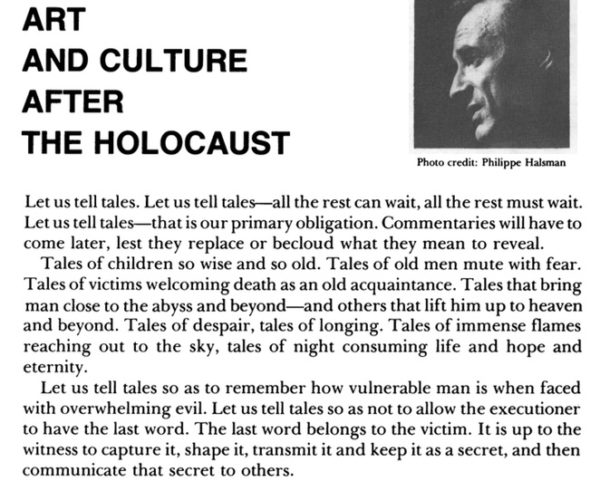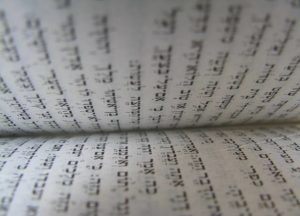Words of the Week: Elie Wiesel
I went in search of these words after I heard Sir Ben Kingsley read them from a paper he took from his jacket pocket at the beginning of a discussion that followed a preview screening of “Operation Finale” here in New York on Monday evening.

Image description: opening paragraphs of Wiesel’s address, accompanied by a photo of Wiesel (credit: Philippe Halsman). The text reads:
Let us tell tales. Let us tell tales—all the rest can wait, all the rest must wait.
Let us tell tales—that is our primary obligation. Commentaries will have to come later, lest they replace or becloud what they mean to reveal.
Tales of children so wise and so old. Tales of old men mute with fear. Tales of victims welcoming death as an old acquaintance. Tales that bring man close to the abyss and beyond—and others that lift him up to heaven and beyond. Tales of despair, tales of longing. Tales of immense flames reaching out to the sky, tales of night consuming life and hope and eternity.
Let us tell tales so as to remember how vulnerable man is when faced with overwhelming evil. Let us tell tales so as not to allow the executioner to have the last word. The last word belongs to the victim. It is up to the witness to capture it, shape it, transmit it and keep it as a secret, and then communicate that secret to others.

